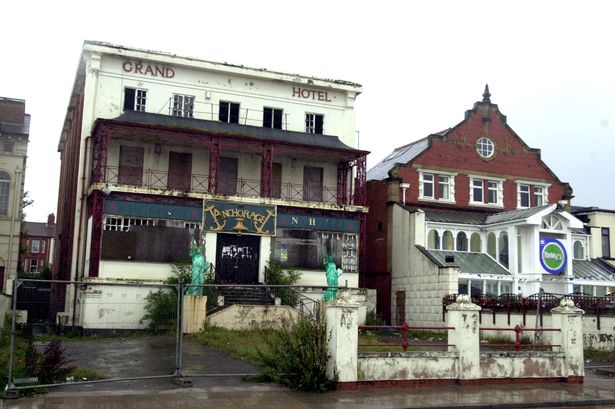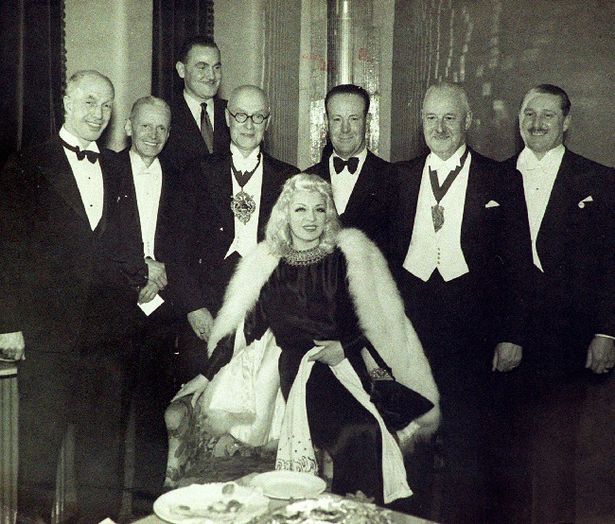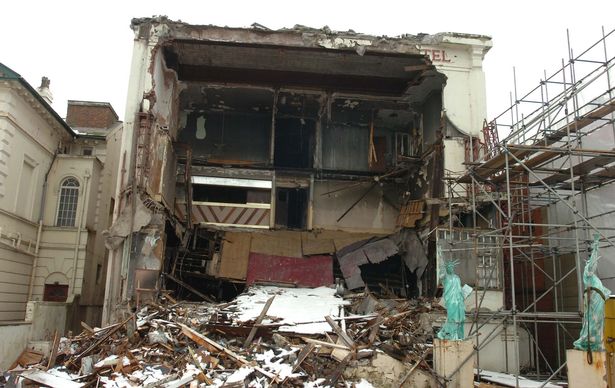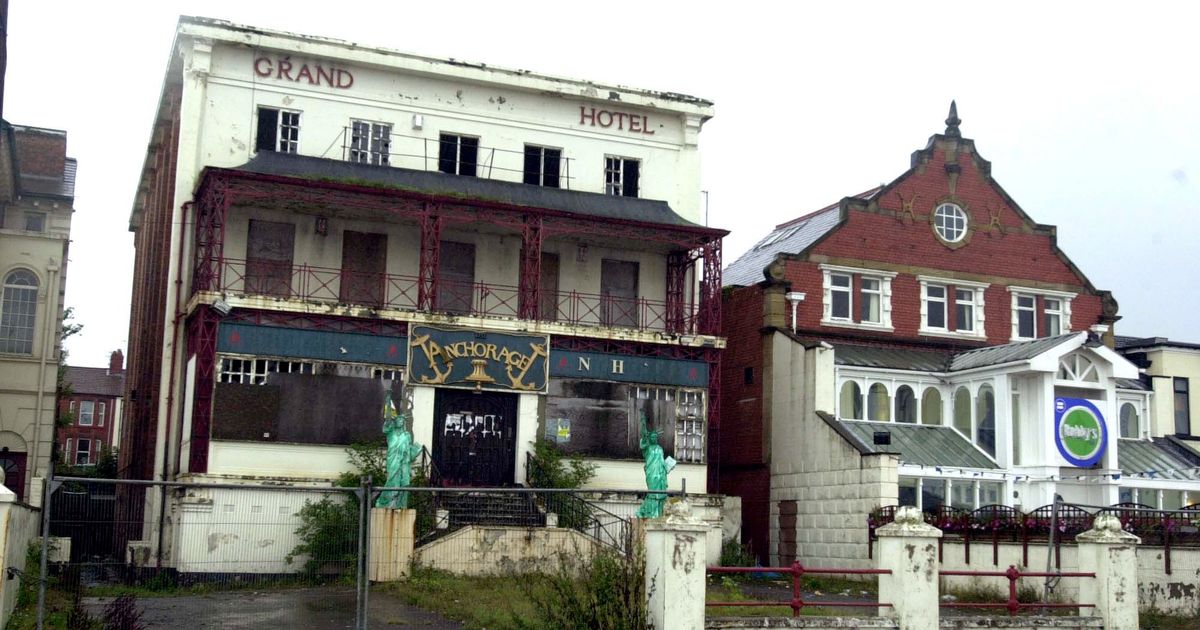Clubbers would dance the night away at the lost club The Grand Hotel, New Brighton(Image: Trinity Mirror Copyright)
The Grand Hotel, New Brighton(Image: Trinity Mirror Copyright)
A much-loved and lost nightclub which served “50p drinks” was an escape from “the humdrum of nine to five life”. The Grand Hotel in New Brighton first started its life as one of the most popular and glamourous hotels in the area.
Built back in the 1850s, New Brighton’s Grand Hotel was revamped in the 20th century and given a glitzy reopening by film icon Mae West. It then became a popular nightclub, seeing clubbers “run up the Marine Promenade” to enjoy the last hour at the venue.
The ECHO previously spoke to Paul Chase, who worked on the doors at The Chelsea Reach, before becoming manager of the club between 1979 and 1985. He then later managed The Grand.
He previously said: “We redecorated, it was pretty run down and on its last legs when I bought it. It very much had an art deco feel to it. The Grand catered for a very similar clientele to The Chelsea Reach.
“There were some geographic differences – The Chelsea eventually catered for a Wallasey crowd, whereas The Grand tended to attract a lot of people from places like Moreton and Meols, as well as Wallasey.
“At one point The Chelsea was closing at 1am and The Grand would close at 2am, so people would leave The Chelsea at 1am and run up the Marine Promenade to The Grand for the last hour.
“It again was a disco based club with private function suites, as was The Chelsea. The Grand had its own crowds, as well as being a go to destination at the end of the night. On a Friday and Saturday night it was very, very busy.
“At The Chelsea in the early days we were open seven nights a week – at The Grand we would open Thursday, Friday, Saturday and Monday and it did well. It was never as successful or as crowded, as busy or as iconic as the Chelsea reach – but it held its own.”
 Movie star Mae West with dignitaries duirng a visit to New Brighton at the opening The Grand Hotel(Image: Reach Content Search)
Movie star Mae West with dignitaries duirng a visit to New Brighton at the opening The Grand Hotel(Image: Reach Content Search)
For years, The Grand held many promotions nights, something former clubbers still talk about today. For Paul, the purpose of The Grand, like other nightclubs at the time, was to create escapism for those who went there.
Paul said: “I think it is remembered for some of the promotion nights we put on there, like the 50p nights. You’d pay an entrance fee and any drink was 50p.
“It became quite well known for that. A lot of people I bump into say ‘I used to love the 50p nights at The Grand.’ For me, it was always about being able to create a party atmosphere so that people could come and get away from the humdrum 9-5 life that most people had to live and to enjoy themselves.”
ECHO readers also previously shared their fond memories of their clubbing days at The Grand. On our Facebook page, Eric Sullivan said: “I had many good nights in there. RIP The Grand.” Keith Roberts wrote: “Had our engagement party in the basement in 1987.”
Dawn Sage posted: “Aww Diane Smith had some good nights in The Grand..xx.” And on our website, kiddathekidda commented: “I used to clean that night club my dad stayed there in the early 90s looking after it. Loved that place, the rooms would creep me out it had a ghostly feeling in the hotel rooms.”
 The remains of The Grand Hotel site in New Brighton being demolished, 00s(Image: Trinity Mirror Copyright)
The remains of The Grand Hotel site in New Brighton being demolished, 00s(Image: Trinity Mirror Copyright)
Through the years, several fires had ruined the inside of the building and campaigners were still keen to protect the impressive façade, which was an important relic of the town’s Victorian past. But in 2006, the ECHO reported how the site had been demolished despite campaigners attempts to save it.
Although the hotel was an important part of the town’s history, English Heritage refused to list it in 2005. Over time, there had been a number of plans to redevelop the building, including turning it into a language school and casino.
The Grand, built before New Brighton’s Marine Promenade, faced the sea and planning chiefs said the building added an important historical context to the seafront, and showed the typical regency detail of seaside architecture of its time. Dave Green, Wirral’s director of technical services, wrote: “The building is of undoubted symbolic significance as a remnant of the 19th and 20th century seaside resort.”
Scaffolding was erected outside the hotel, with bulldozers moving in. Wirral Council previously said because the land was privately owned, its only responsibility was to make sure it was taken down safely. At the time, a spokeswoman added the hotel had attracted vandalism in recent years, as well as being gutted by fires and was in a derelict state. The owner was not able to be reached for comment.
